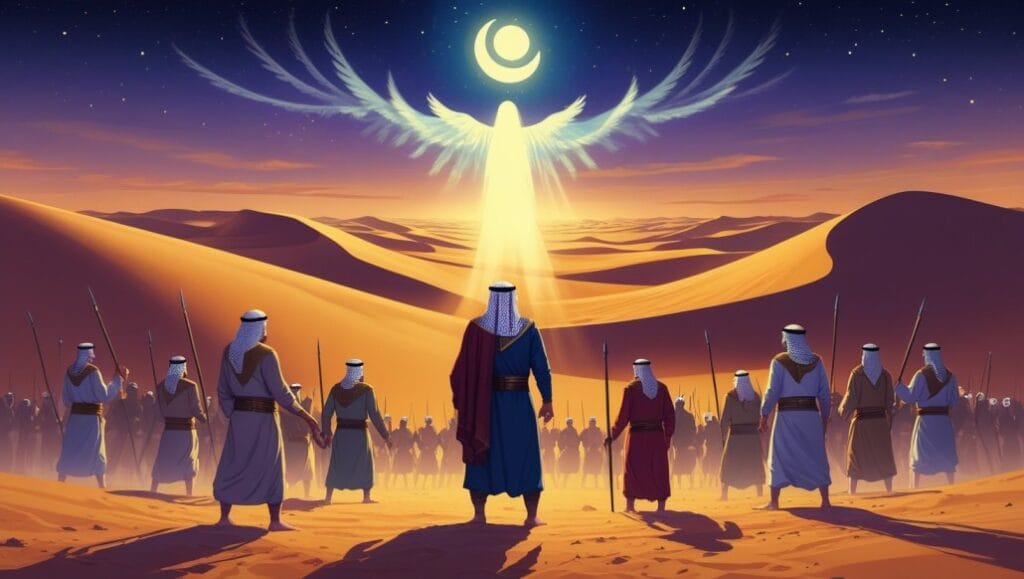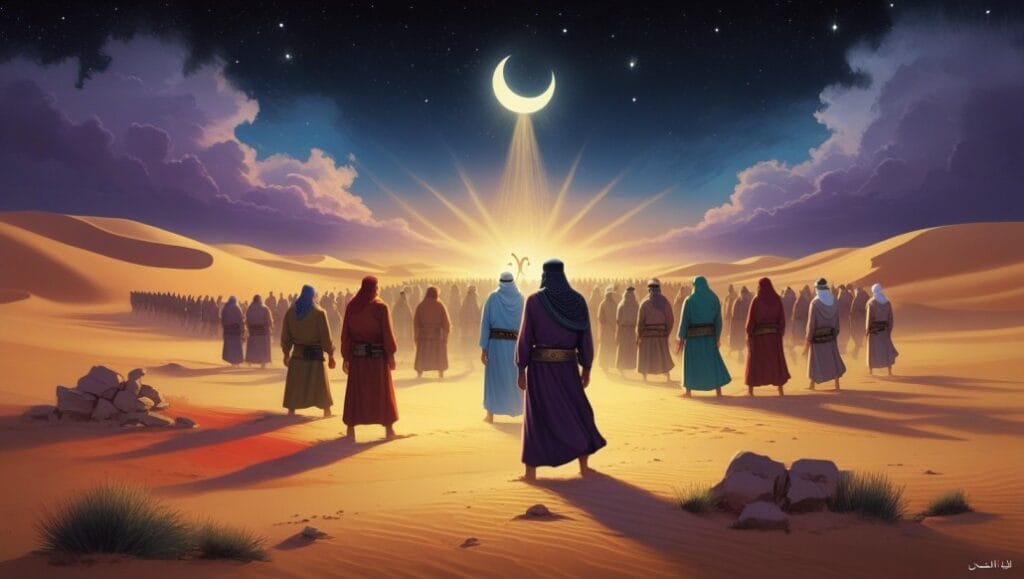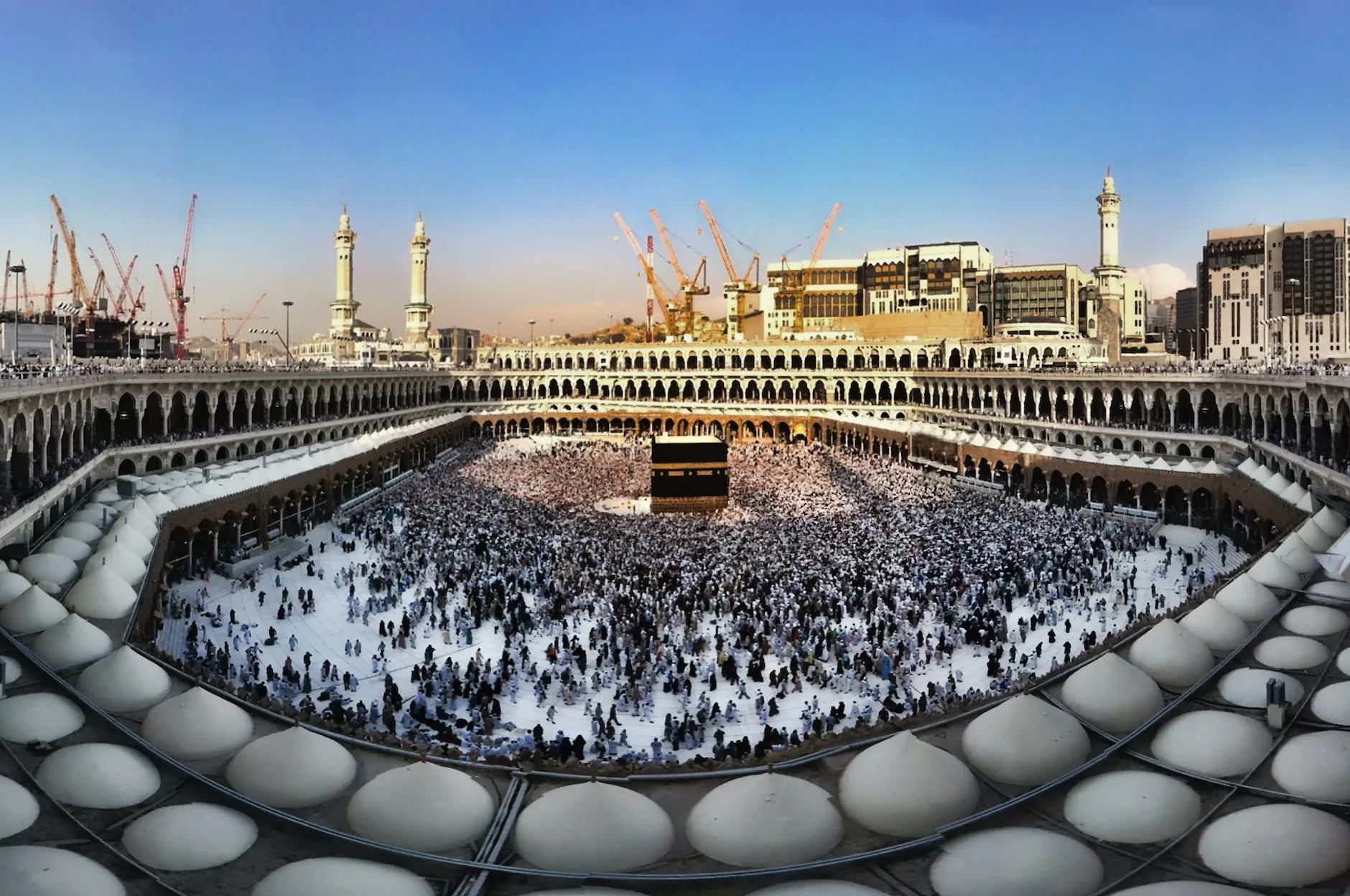Key Points
- Research suggests the Battle of Badar, fought on March 13, 624 CE (17th Ramadan, 2 AH), was a pivotal victory for early Muslims against the Quraish, boosting morale and faith.
- It seems likely that 313 Muslims defeated around 1,000 Quraish near Badar, Saudi Arabia, during Ramadan, with divine intervention noted in the Qur’an.
- The evidence leans toward the battle teaching unity, courage, and trust in God, with lasting impact on Islamic history, especially during Ramadan.

The Battle of Badar is a significant event in Islamic history, marking a turning point for the early Muslim community. Fought on March 13, 624 CE, during the sacred month of Ramadan, it saw Prophet Muhammad lead 313 Muslims to victory against a larger Quraish force of about 1,000. This victory, against all odds, not only boosted morale but also reinforced faith in divine support, making it a cornerstone of Islamic narrative.
Historical Context
Before the battle, Muslims faced intense persecution from the Quraish in Mecca, leading to their migration to Medinah in 622 CE. Even after settling, the Quraish continued threats, prompting Muslims to intercept Meccan caravans for economic and defensive reasons, setting the stage for the Battle of Badar.
Battle Details
On the 17th of Ramadan, the battle near Badar saw Muslims, despite being outnumbered, employ strategic tactics like controlling water sources and benefiting from divine aid, as mentioned in the Qur’an. Key figures included Prophet Muhammad, Ali ibn Abi Talib, and Abu Jahl, with the Muslims securing a decisive victory, killing 70 Quraish and capturing 70, while losing only 14.
Comprehensive Analysis of the Battle of Badar
The Battle of Badar, a defining moment in Islamic history, occurred on March 13, 624 CE, corresponding to the 17th of Ramadan in the year 2 AH, as documented in various historical accounts. This battle, fought near the present-day city of Badar in Saudi Arabia’s Al Madinah Province, marked a significant victory for the early Muslim community led by Prophet Muhammad against the Quraish tribe of Mecca. This analysis aims to provide a detailed examination of the event, its context, execution, and lasting impact, ensuring a thorough understanding for readers interested in Islamic history and its spiritual dimensions.
Also Read: 31 Shab E Qadr quotes images : Life-Changing Laylatul Qadr Quotes for Endless Blessings

Historical Context and Prelude
The historical backdrop to the Battle of Badar is rooted in the tensions between the nascent Muslim community and the Quraish, the dominant tribe in Mecca. The Quraish, custodians of the Kaaba, opposed the spread of Islam, leading to severe persecution of Muslims. This persecution forced Prophet Muhammad and his followers to migrate to Medinah in 622 CE, an event known as the Hijrah. Even after settling in Medinah, the Quraish continued their hostility, engaging in smaller skirmishes and threatening the Muslim community’s stability.
The immediate trigger for the battle was the interception of a Meccan caravan led by Abu Sufyan, returning from Syria. Prophet Muhammad, seeing this as an opportunity to weaken the Quraish economically and retaliate against their aggression, mobilized a force of approximately 313 Muslim men. However, Abu Sufyan, upon learning of the Muslim plan, altered his route and sought help from Mecca, prompting the Quraish to assemble a larger army of about 1,000 men to protect the caravan and confront the Muslims.
The Battle: Tactics and Execution
The Battle of Badar commenced with duels between champions, a common practice in Arabian warfare. The Muslim champions, including Hamza ibn Abd al-Muttalib, Ali ibn Abi Talib, and Ubayda ibn al-Harith, emerged victorious, with Ubayda wounded but surviving. The main engagement saw the Muslims, despite their numerical disadvantage, employ effective tactics. Prophet Muhammad’s strategy included scouting operations, as seen in his actions with Abu Bakr to locate the Quraish camp, and strategic positioning by occupying the well closest to the enemy, destroying other wells to deny water to the Makkans, as suggested by al-Hubab ibn al-Mundhir.

The Muslim force was divided into battalions, with az-Zubayr commanding the right flank, al-Miqdad the left, and Qays bin Abi Sa’sa’ah the rear, ensuring disciplined deployment. The night before the battle, on March 12 (16 Ramadan), the Muslims prayed near a tree, believed to ensure a refreshing night, attributed to divine blessing. During the battle, Prophet Muhammad maintained control, ordering no attack without his permission, and initiated a counterattack with a traditional Arabian gesture of throwing pebbles, rallying with cries like “Defaced be those faces!” and “Yā manṣūr amit!” This led to the Muslim army rushing the Quraish lines, ultimately breaking their formation and securing victory.
Key figures on the Quraish side, such as Abu Jahl, were killed, marking a significant blow to their leadership. The battle lasted hours, resulting in a decisive Muslim victory, with many Quraish prisoners captured and later treated with mercy, reflecting Islamic principles of compassion.
Significance and Spiritual Dimensions
The Battle of Badar’s significance extends beyond its military outcome. It is referred to in the Qur’an as “Yawm al-Furqan” (The Day of the Criterion), highlighting its role in distinguishing truth from falsehood. The Qur’an, in Surah Aal-‘Imran (3:123), states, “Allah helped you at Badr when you were very weak. Be mindful of Allah, so that you may be grateful,” underscoring divine intervention. Traditional accounts suggest angels aided the Muslims, a belief reinforced by the Qur’anic mention of three thousand angels sent down (Surah 3:124-125), enhancing its spiritual importance.
Occurring during Ramadan, a month of fasting, prayer, and reflection, the battle’s timing adds to its sanctity. It is commemorated annually, with its anniversary shifting approximately 11 days earlier each year in the Gregorian calendar due to the lunar Islamic calendar. This connection to Ramadan symbolizes blessings and empowerment, as noted in historical reflections, such as those by Islamic Relief UK, which highlight its role in a series of triumphs during the sacred month.
Emotional and Human Aspects
The battle was not just a military engagement but a deeply human and emotional experience. Accounts reveal the dire circumstances faced by Muslims, such as sharing a single date to break their fast, illustrating extreme hunger and resilience. The Prophet’s prayer before the battle, as recorded, expressed deep anxiety: “God, this is Quraish. It has come with all its arrogance and boastfulness, trying to discredit Thy Apostle. God, I ask Thee to humiliate them tomorrow. God, if this Muslim band will perish today, Thou shall not be worshipped,” reflecting the stakes and emotional weight (Al-Islam.org). Personal stories, like Umm Salama’s account of migration and Suhaib al-Rumi’s sacrifice of wealth for faith, underscore the human cost and commitment.
Lessons and Modern Relevance
The Battle of Badar offers timeless lessons. It exemplifies courage and perseverance, with the Muslim community standing firm against a larger force, teaching us to face adversity with resolve. Unity and discipline were crucial, as seen in the organized battalions and council of war, where figures like Sa’d ibn Mu’adh affirmed commitment, saying, “We will obey you most willingly in whatever you command us, and by Allah, Who has sent you with the Truth, if you were to ask us to throw ourselves into the sea, we will do that most readily and not a man of us will stay behind”. Trust in God was evident in the Prophet’s reliance on divine support, reminding modern readers to seek spiritual strength.
Strategic planning, such as controlling water sources and maintaining command, highlights the importance of preparation. Post-victory, the humility and gratitude shown by Muslims, distributing spoils equally after taking al-khums (one-fifth), teach us to remain grounded in success. These lessons resonate during Ramadan, encouraging reflection on faith and community.
Comparative Analysis and Controversy
While the battle is celebrated in Islamic tradition, its historicity is debated by contemporary historians due to reliance on accounts written decades later, with little pre-9th-century evidence . This controversy does not diminish its spiritual and cultural significance but invites critical engagement. The battle’s legacy, seen in operations named “Badr” in modern conflicts like Egypt’s 1973 Yom Kippur War, shows its enduring symbolic power.
Tables for Clarity
To organize key details, consider the following tables:
| Aspect | Details |
|---|---|
| Date and Location | March 13, 624 CE, 17th Ramadan, 2 AH, near Badar, Saudi Arabia |
| Forces Involved | Muslims: ~313, Quraish: ~1,000 |
| Key Leaders | Prophet Muhammad (Muslims), Abu Jahl (Quraish, killed) |
| Outcome | Decisive Muslim victory, many Quraish prisoners captured |
| Spiritual Significance | Mentioned in Qur’an as “Yawm al-Furqan,” angels’ aid noted |
| Tactic | Details |
|---|---|
| Scouting and Intelligence Gathering | Conducted with Abu Bakr, interrogated Meccan water-bearers for Quraish camp details |
| Strategic Positioning | Occupied well closest to Quraish, destroyed others to deny water, on al-Hubab’s suggestion |
| Council of War | Ensured commitment from Muhajirun and Ansar, key speeches by Abu Bakr, Umar, others |
| March and Deployment | 313 men, two battalions, commanders: az-Zubayr (right), al-Miqdad (left), Qays (rear) |
| Prayer and Morale Boosting | Night prayer near tree, believed to ensure refreshing sleep, attributed to divine blessing |
| Controlled Engagement | No attack without Prophet’s permission, maintained command and control |
| Counter-Attack Initiation | Threw pebbles, rallied with “Defaced be those faces!” and “Yā manṣūr amit!”, rushed Quraish lines |
These tables encapsulate critical data, enhancing readability and comprehension.
Conclusion
The Battle of Badar, fought on March 13, 624 CE during Ramadan, remains a beacon of faith and resilience. Its military, spiritual, and emotional dimensions offer profound lessons for contemporary audiences, especially during Ramadan, encouraging unity, courage, and trust in God. As we reflect on this event, it invites us to draw strength from history, facing modern challenges with the same spirit of perseverance.


